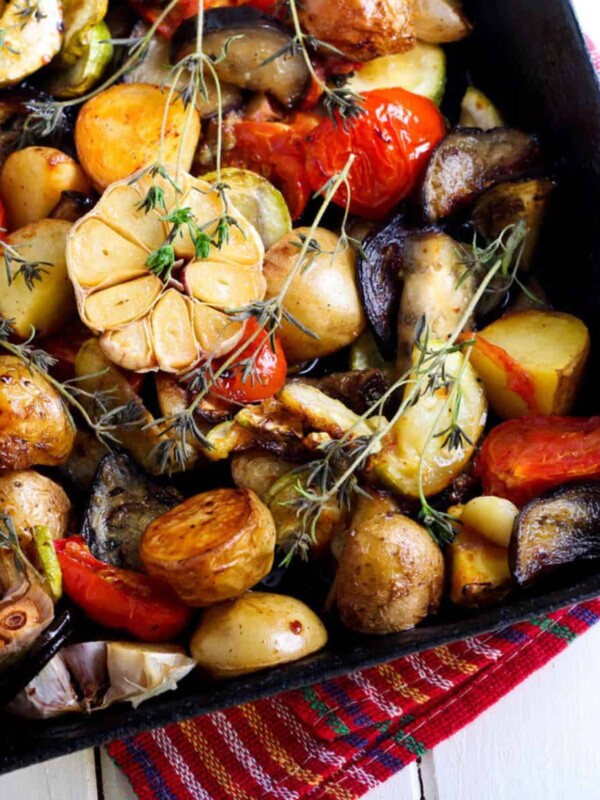This post may contain affiliate links. Please read our disclosure policy.
Good nutrition and adequate exercise are often regarded as core aspects of a healthy lifestyle. While this is certainly true, there are other aspects of healthy living and food we should take into account.
In the world of weight loss, Intermittent Fasting is the newest craze for dropping a few pounds. Intermittent fasting is a great way to lose weight without having to drastically change your diet or lifestyle.
Practicing brief periods of fasting followed by periods of eating unrestrictedly, has proven beneficial for many people.
Those who follow this trend throughout the year and plan to fast during Ramadan may wonder what the similarities are between voluntary fasting and spiritual fasting. To gain a better understanding, it may help to explore the commonalities between them.
What Do You Know About Fasting?

Ramadan: The Practice of Fasting
During Ramadan, the ninth month of the lunar-based Islamic calendar, Muslims are required to abstain from food and drink for 30 days from dawn to dusk.
Fasting during Ramadan means abstaining from all food and drink from dawn to sunset, including water and chewing gum. Muslims are advised to eat a pre-fast meal known as suhoor before sunrise.
This meal is frequently associated with breakfast, but in some cultures, it may include more dinner-like foods.
After sundown, Muslims break their fast with iftar, a meal that typically begins with dates and water and ends with dinner. Muslims are allowed to snack between those two meals at night. Hydration is also encouraged, especially when Ramadan falls during the summer.
Muslims can make it to sundown more easily by eating high-fiber meals to maintain satiety over longer periods, fruits and vegetables to maintain electrolyte stores, and plenty of fluids to maintain hydration. They should also limit their intake of fried foods and sugary sweets,
Dates Hold a Special Importance During Ramadan

Ramadan Fasting Spiritual Benefits
During Ramadan, Muslims are expected to practice discipline, humility, and spiritual reflection. Muslims experience Ramadan in different seasons throughout the course of their lives because Ramadan shifts approximately 11 days earlier each year on a solar-based calendar.
In addition to reminding Muslims to be grateful, fasting also serves as an important reminder for them to think of those less fortunate. It is also one of the five pillars of Islam and is mandatory for all healthy adults during Ramadan.
What Is Intermittent Fasting?
Intermittent fasting (IF) is one of the world’s most popular health and fitness trends right now. It is a dietary pattern in which people restrict their food consumption to specific times of the day.
It is being used to help people lose weight, improve their health, and simplify their lives.
Some research indicates that it may have benefits other than weight loss, such as improved brain and heart health.
Types of Intermittent Fasting
- Alternate-day fasting: This type of fasting involves alternating a 24-hour complete fast with no energy intake with a 24-hour normal eating period.
- Whole-day fasting: A person has to fast completely one or two days per week.
- Modified fasting regimes: An example of this is 5:2 fasting regime in which you eat only 500 calories (20-25% of your energy needs) for two non-consecutive days and eat normally for the remaining five days.
- Time-restricted feeding: An example of this type is 16-18 hour fasting windows with a set feeding time based on your lifestyle (for example, fasting between 6pm and 10am daily).
- The Warrior Diet: It is one of the first popular diets to incorporate some form of intermittent fasting. It consists of eating small amounts of raw fruits and vegetables throughout the day and one large meal at night.
How Does Intermittent Fasting Affect Weight Loss?
Food is broken down in our gut by enzymes and eventually ends up as molecules in our bloodstream. Carbohydrates, especially sugars and refined grains (like rice and white flours), are rapidly broken down into sugar, which our cells use for energy.
If our cells do not use it all, we store it as fat in our fat cells. However, sugar can only enter our cells through insulin, a hormone produced in the pancreas. Insulin transports sugar into and keeps it in fat cells.
As long as we don’t snack between meals, our insulin levels will fall, allowing our fat cells to release their stored sugar for use as energy. We lose weight when we allow our insulin levels to fall. T
he whole point of intermittent fasting is to allow insulin levels to drop far enough and for long enough that we burn off our fat.
What Can You Eat While Intermittent Fasting
When you are not eating, you can have water and zero-calorie beverages such as black coffee and tea.
You also have to keep in mind that eating normally during your eating periods does not imply going insane. If you fill your meals with high-calorie junk food, super-sized fried items, and treats, you’re unlikely to lose weight or get healthier.
The best options to have are complex, unrefined carbohydrates like whole grains, leafy greens, healthy fats, and lean protein.
Whatever Diet You’re Following, Salads Are Always a Win-Win!

Can Intermittent Fasting Improve Your Health?
Here are some of the potential benefits of intermittent fasting:
Memory and thinking: According to research, intermittent fasting may improve verbal memory in adults.
Heart health: Intermittent fasting may increase blood pressure, resting heart rate, and other heart-related measurements.
Physical ability: Some studies showed that fasting for 16 hours resulted in fat loss while maintaining muscle mass in young men.
Obesity and type 2 diabetes: Some studies revealed that obese adult humans lost weight by fasting intermittently.
The majority of available research indicates that intermittent fasting can help people lose body weight and lower their fasting glucose, fasting insulin, and leptin levels while also reducing insulin resistance, decreasing leptin levels, and increasing adiponectin levels.
According to some studies, some patients who practiced intermittent fasting under the supervision of their doctors were able to eliminate their need for insulin therapy.
Frequently Asked Questions (FAQs):
Simply put, when people practice intermittent fasting without exercising, they lose weight, but a large portion of it comes from muscle in the lean mass.
If you don’t eat for 10-16 hours, your body will turn to its fat stores for energy, releasing fatty acids known as ketones into the bloodstream.
You can repeat this cycle as many times as you want, from once or twice a week to every day, depending on your preferences.
Top Tips
Start slow. For example, you could begin with a 12 hour fast and a 12-hour eating window and gradually progress to a 16:8 schedule (where you fast for 16 hours and have an eight-hour eating window).
Know why you’re doing it. Push through the tough times by remembering your ‘big why’.
Stay hydrated. Your body can misinterpret thirst for hunger. That is one of the reasons why many people who practice intermittent fasting advise drinking a lot of water.
Don’t compare yourself to others. Everyone has a different metabolism and goal. Use trial and error to find out what works best for you and your body.
Drink ginger tea. Drinking ginger tea at night and in the mornings may help with cravings and keeps you full during fasting hours.




